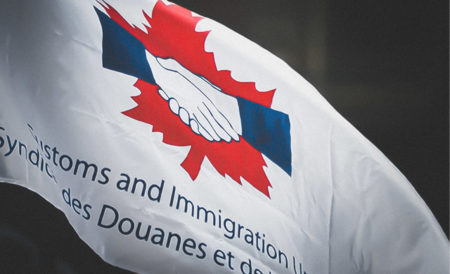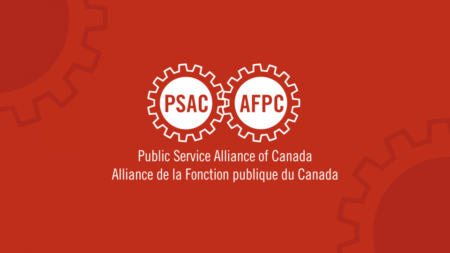CIU National President Mark Weber sent the following letter to Stephen Laskowski, President of the Canadian Trucking Alliance, on February 3, 2022.
Dear President Laskowski,
It is with great interest that I have been reading the recent statements issued by the Canadian Trucking Alliance in response to the ongoing protests against mandatory vaccination for truck drivers and other essential workers crossing the Canada-U.S. border.
Last August 6, when members of the Customs and Immigration Union undertook their work-to-rule strike action as part of contract negotiations, the overwhelming majority of truck drivers demonstrated patience and consideration towards Border Officers, speaking to the professionalism of your membership. In the last few weeks, the feedback from our members on the frontline has also been unequivocal: Since the implementation of the mandatory vaccination policy for cross-border travel in late January 2022, interactions between Border Officers and truck drivers entering Canada have continued to be positive.
As the CTA noted in its communications, most truck drivers are vaccinated and are complying with COVID-19 related regulations. With CBSA personnel and truck drivers interacting on a daily basis across Canada, I am greatly appreciative of the fact that our respective memberships have been doing their part to ensure the health and safety of everyone involved in maintaining the flow of commercial goods entering the country.
While the right to protest is an undeniable strength of our democracy, it is certainly unfortunate to see that some individuals have elected to voice their irritation with current regulations in a way that casts a shadow on the rest of the truck driving profession. I am certain that Canadians everywhere know that these actions are not representative of your members in general. Acts of intolerance cannot be condoned or ignored, and I am glad to see the CTA taking a strong position against such behaviour.
In closing, I wish to thank your members for working the front line throughout the pandemic, and offer my full support to you and your organization in these challenging times. In line with what you yourself have stated, only by working together toward a common goal can we hope to mitigate the effect of the ongoing pandemic. In that spirit,
Best regards,
Mark Weber
National President
Customs and Immigration Union
Click here for the PDF version.





